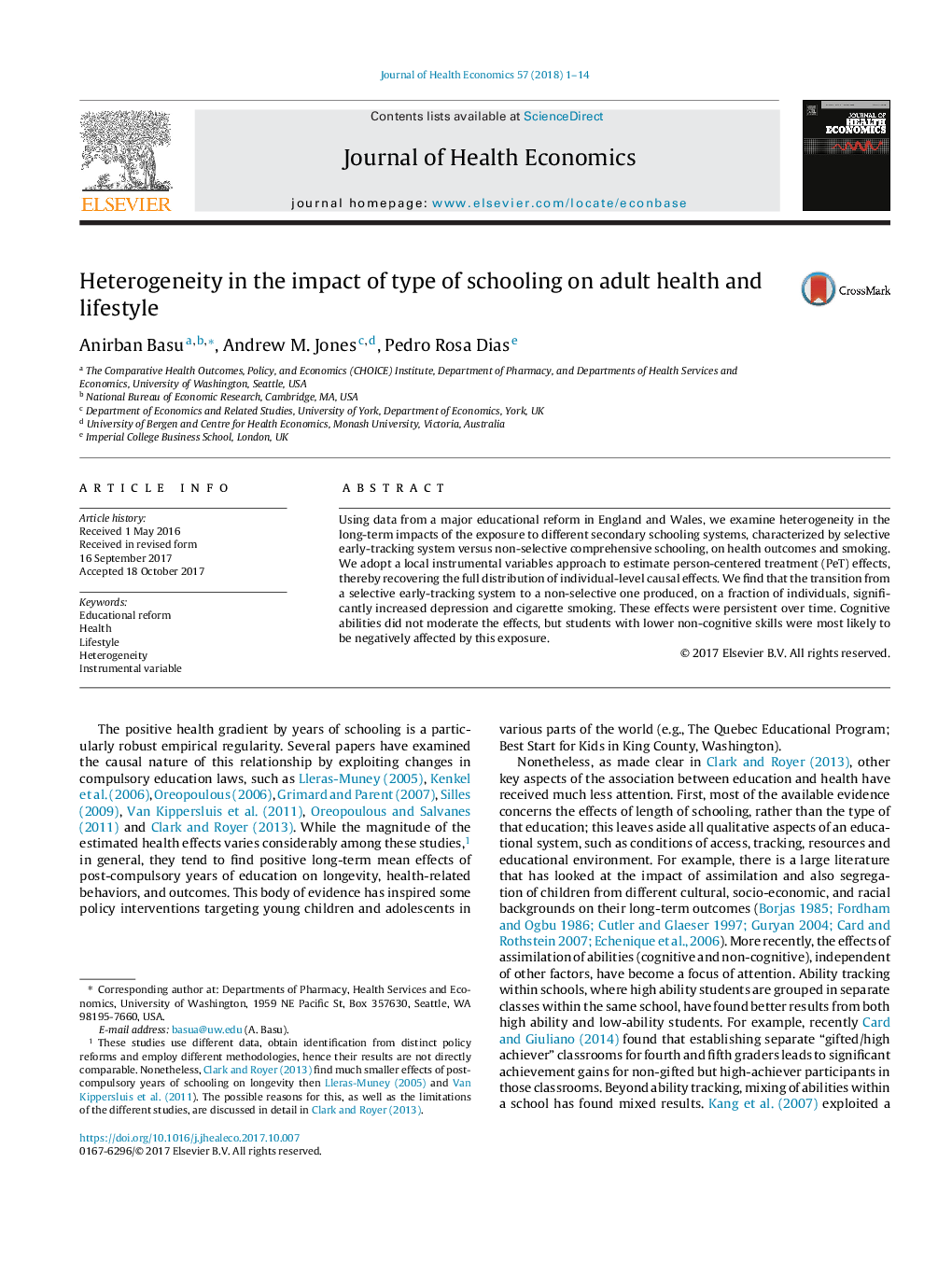| Article ID | Journal | Published Year | Pages | File Type |
|---|---|---|---|---|
| 7362900 | Journal of Health Economics | 2018 | 14 Pages |
Abstract
Using data from a major educational reform in England and Wales, we examine heterogeneity in the long-term impacts of the exposure to different secondary schooling systems, characterized by selective early-tracking system versus non-selective comprehensive schooling, on health outcomes and smoking. We adopt a local instrumental variables approach to estimate person-centered treatment (PeT) effects, thereby recovering the full distribution of individual-level causal effects. We find that the transition from a selective early-tracking system to a non-selective one produced, on a fraction of individuals, significantly increased depression and cigarette smoking. These effects were persistent over time. Cognitive abilities did not moderate the effects, but students with lower non-cognitive skills were most likely to be negatively affected by this exposure.
Related Topics
Health Sciences
Medicine and Dentistry
Public Health and Health Policy
Authors
Anirban Basu, Andrew M. Jones, Pedro Rosa Dias,
